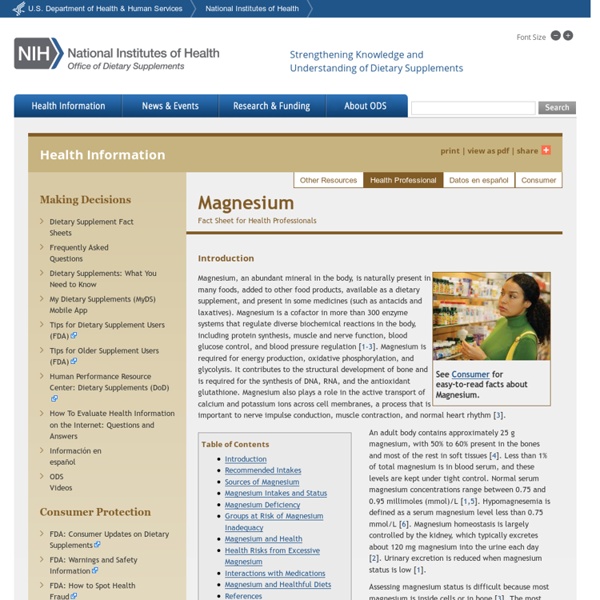Magnesium

Magnesium - Gesundheit und Medizin auf QualiMedic
Bananen sind Magnesiumlieferanten(Quelle: BananaStock) Magnesium ist ein lebenswichtiger Mineralstoff und gehört zur Gruppe der Mengenelemente.60 Prozent des Magnesiums findet man in den Knochen, 30 Prozent im Bindegewebe und nur etwa ein Prozent ist im Blut gelöst. Der Magnesiumgehalt des Körpers beträgt zwischen 20-30 Gramm. Magnesium ist wichtig für verschiedene Funktionen im Körper wie z.B. für den Energie-und Muskel-Stoffwechsel, für das Nervensystem und den Knochenaufbau. Aufgaben von Magnesium Magnesium ist der zweithäufigste intrazelluläre Mineralstoff und mit dem physiologischen Gegenspieler Kalzium nicht nur am Aufbau des Skelettsystems und der Knochen beteiligt. Zusammensetzung (Synthese) von Eiweißen Für die Verdauung sind verschiedene körpereigene Enzyme wichtig. Ursachen für einen Magnesiummangel Der Magnesiumgehalt in den Ackerböden ist durch die Verwendung kaliumhaltiger Kunstdünger stark gesunken. Symptome eines Magnesiummangels Magnesiumreiche Nahrungsmittel Überdosierung
Related:
Related:



